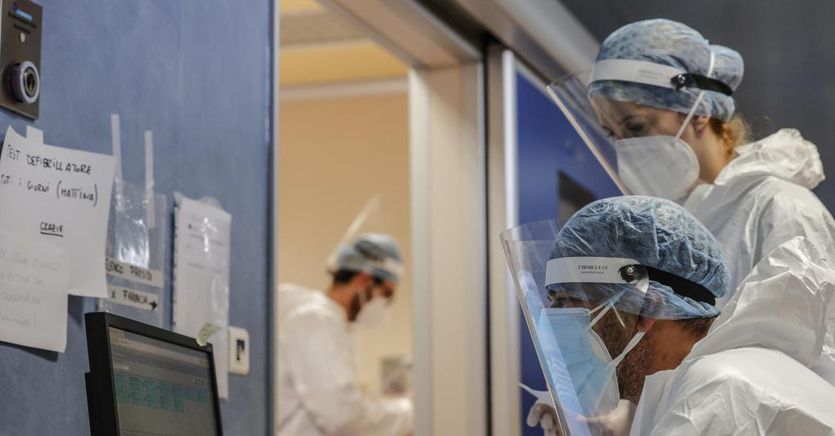The multisystem inflammatory syndrome (MIS-C) has a genetic cause, which affects children and adolescents who have contracted Covid and it is possible to identify it in an appropriate time, in order to have a personalized and early therapeutic management with already known treatments, choosing the most appropriate. The two data emerge from a scientific study carried out by the Ceinge – Advanced Biotechnology research center in Naples, in collaboration with the Neapolitan Santobono-Pausilipon pediatric hospital.
What is multisystem inflammatory syndrome
During the Covid pandemic, complications have also been found in pediatric patients, one of these is the multisystem inflammatory syndrome. It is a rare and severe complication, which appears after a fairly long period, from two to six weeks, from acute Sars-Cov-2 infection. It occurs with high fever and gastrointestinal symptoms and can involve several organs: heart, kidneys, lungs. It affects 2% of children who contract Covid. The researchers also identified biomarkers useful for the timely identification of mutations, a fundamental aspect for personalized therapeutic management.The research was funded by the Campania Region and published by two scientific journals: Frontiers in Immunology (MIS-C: A COVID-19 -associated condition between hypoimmunity and hyperimmunity) and Metabolites (Biomarkers of Endothelial Damage in Distinct Phases of Multisystem Inflammatory Syndrome in Children).
The discovery of the genetic cause
“We studied 45 children who had this major complication and we studied two things. The first: the profile of 400 genes that are associated with diseases and immune disorders and we have seen that 10 of these genes are linked to the increased risk of developing MIS-C “, explains Giuseppe Castaldo coordinator of the study of the Center for Advanced Biotechnologies and Professor of Technical Sciences of Laboratory Medicine at the Federico II University of Naples. “We have arrived – continues Castaldo – to results that clearly show how MIS-C is associated with mutations in genes already implicated in auto-immune and auto-inflammatory diseases, thanks to the latest generation equipment and we have seen that during the acute phase of COVID-19 infection, in children with the described genetic traits, complete elimination of the virus does not occur. This causes tissue damage and triggers the hyper-reactive immune response typical of the Syndrome ».
It is possible in the future to understand who is most at risk
The application of this study, in the future, will give the possibility to identify who has a higher risk of developing Mis-C, through the analysis of some genes, already during acute covid, and therefore to inform parents about the symptoms. and on how to behave. As for the other part of the study, “for patients who already have multisystem inflammatory syndrome, at the time of hospitalization – continues Professor Castaldo – it will be possible to study the panel of laboratory tests, to understand in each individual child which is the main inflammatory alteration from the biological point of view. And so we can imagine an appropriate therapy with biological drugs ». More specifically, the researchers’ attention was focused on the events of endothelial vasculitis which, together with the acute inflammatory state, represent hallmarks of COVID-19 and MIS-C and can cause venous and arterial thrombosis events. This allowed to identify some proteins involved in endothelial damage processes as potential biomarkers of MIS-C. «The dosage of these proteins would allow not only to diagnose MIS-C, but also to identify a potential development of vasculitis. Consequently – continues Castaldo – the early identification of patients with endothelial damage would allow us to define personalized therapies, such as prophylaxis with anticoagulants, immunomodulators and anti-angiogenic drugs ».
